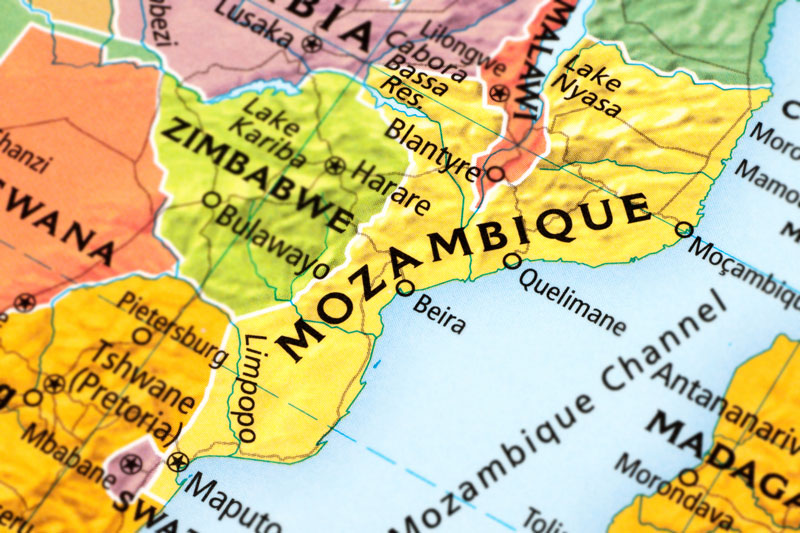Mozambique
Context
Mozambique is one of the world’s richest countries in terms of mineral resources, but also a Least Developed Country with high rates of poverty and extreme poverty. Transforming mining resources into human and social capital, while minimizing environmental and social harm and maximizing respect for human rights is one of the most pressing development challenges facing Mozambique.
For Mozambicans to benefit from mining, a robust legal, institutional, and political framework must be in place to ensure participation, accountability, and adherence to international standards in the governance of the sector. This can only be achieved through strengthening rights-based governance systems, including through fostering transparency and an active and informed citizenry, and by developing strong accountability mechanisms.
Capacity development
Assessing the Rule of Law in Public Administration of the Mining Sector
The EGP has supported the National Institute of Mining and the National Directorate for Environment in developing the Rule of Law in Public Administration of the Mining Sector (ROLPAM) to assess the governance of the mining sector.
The Ministry of Land, Environment and Rural Development and Ministry of Mineral Resources and Energy have applied the ROLPAM mining governance assessment for both the Central Government and at the sub-national level, focusing on the mineral-rich provinces of Cabo Delgado, Nampula, and Tete.
Establishing Participatory Environmental Monitoring Committees
The EGP is starting a pilot project in the mineral-rich provinces of Tete and Manica with the aim of establishing pioneer participatory environmental monitoring committees. This EGP project is being developed with the National Agency for Environmental Quality Control of the Ministry of Land, Environment and Rural Development and Source International. This EGP project will enable local communities to perform basic environmental monitoring of mining with the aim of preventing human rights violations and environmental degradation, focusing on artisanal mining.
Strengthened intergovernmental coordination
The EGP supported the establishment of a coordination group to ensure the effective implementation of the programme in Mozambique. It is composed of the National Institute of Mining; the Ministry of Land, Environment and Rural Development; the Ministry of Mineral Resources and Energy; the National Environmental Monitoring Agency; and the National Human Rights Commission. The group convenes on a quarterly basis.
Information sharing and advocacy
The EGP has developed a compendium of Good Practices for Women and Mining in Mozambique with UN Women that highlights the challenges and opportunities for women in the mining sector.
Training workshops
National Workshop on Human Rights-based Environmental Public Administration
The EGP and the Ministry of Land, Environment and Rural Development organized a national training seminar on human rights, the environment and mining on October 2016 in Bilene, Province of Gaza, for 45 decisionmakers from the National Directorate on the Environment and the Ministry of Mineral Resources and Energy. The workshop focused on the need for all mining-related projects to safeguard human rights, especially in the communities affected by the projects, and ensure that men and women have equal opportunities. The workshop report is available here.
Training on Free Prior and Informed Consent
The EGP has designed and conducted training on Free Prior and Informed Consent in collaboration with OXFAM. This training has benefited community leaders and civil society organizations from the provinces of Manica, Nampula and Cabo Delgado. In Mozambique, the legal framework does not currently protect Free Prior and Informed Consent, but it can serve as a rights-based mechanism or safeguard since national legislation recognizes certain community rights related to natural resources and access to land.
Workshop on Environmental Governance of the Mining Sector
The EGP also supported the participation of Mozambiquean mining authorities in the Kwale Workshop, which was held on May 15-17, 2018, in Kenya. It focused on the operationalization of the recommendations from the EGP-led assessments of the mining sector, namely: the Strategic Environmental and Social Assessment (SESA) in Kenya and the Rule of Law in Public Administration of the Mining Sector (ROLPAM) in Mozambique.
Our partners
National Directorate on Environment (DINAB), Ministry of Land, Environment and Rural Development (MITADER)
National Environmental Quality Control Agency (AQUA/MITADER)
National Institute of Mining (INAMI), Ministry of Mineral Resources and Energy (MIREME)
National Directorate of Planning and Cooperation (DPC/MIREME)
National Human Rights Commission (CNDH)
The World Bank, Mining and Gas Technical Assistance Project (MAGTAP)
Resources
Interview on Participatory Environmental Monitoring in Mozambique, by Josimar Biosse, AQUA/MITADER, and Laura Grassi, Source International, February 2019.
Key Findings and Recommendations from RoLPA in Mozambique, by Janeiro Avelino Janeiro, UNDP Mozambique, Kwale Workshop, May 2018
Stakeholder Engagement in the Mining sector in Mozambique, by António Sive, Ministry of Mineral Resources and Energy, Kwale Workshop, May 2018
Focal point
The EGP focal point in UNDP Mozambique is Manuela Muianga.




